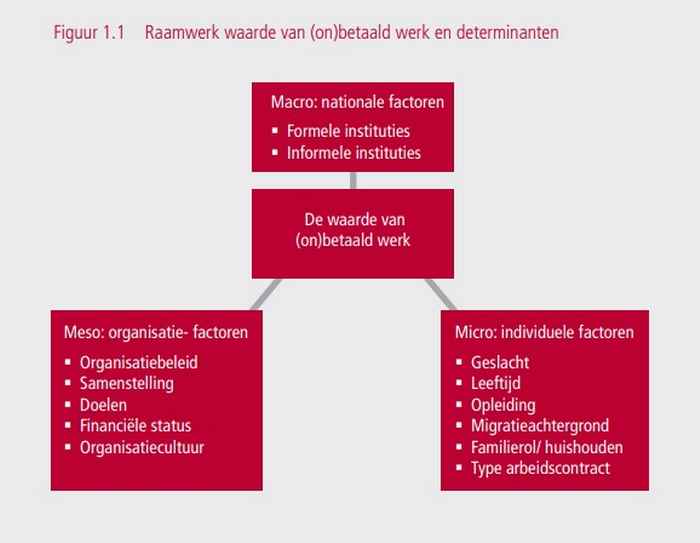Value of Work
This research project examines the (changing) value of work in contemporary society
What is the Value of Work?
The Value of Work project aims to provide new knowledge and more insight into the value(s) of work among the Dutch population.
The Value of Work project provides (scientific) knowledge about the value and quality of work and contributes to well-informed policymaking of various stakeholders (employer organisations, trade unions, the government (central government and municipalities), public administration organizations (such as UWV), interest groups of clients and professionals, educational institutions, political parties, research institutes). In our research plans we detail what type of knowledge and insights can be expected from the project team over a period of approximately 2 years.
In recent years, many social actors have focused on the future of work and the value of work: all have noted that the nature of the labour market is changing, that this offers opportunities on the one hand, but also brings new challenges and risks with it. And that they must find an answer to the question of how best to respond to this. The Value of Work project offers various stakeholders important tools to determine their position in this field.
An important part of this project is the Value of Work Monitor – a large-scale, national survey into the value(s) of work in the Netherlands.
Frequency: From 2019 onwards every odd year
Fieldwork period: Spring
NN: about 3500-4000 respondents
On this website you can find the background and results of our studies.
Theoretical background
Given the broad and varied nature of the value of work it is considered essential to adopt an interdisciplinary perspective, combining insights and approaches from different disciplines, such as sociology, psychology and economics.
Research questions in the project
- How are technological developments related to the value of work?
- What are the consequences of the transition into a sustainable economy for the value of work, and to what extent are workers willing and able to adjust?
- How are the value and valuation of both paid and unpaid work related to a) individual and work characteristics, and b) the (organizational) context in which the work is conducted and c) how do both formal and informal institutions with respect to work and income affect the realization of the maximum value of work?
- Has the value and valuation of work been changing since the start of the COVID-19 pandemic, and how is this related to individual, work, organizations and institutional characteristics?
- (How) does the value of work differ between advanced economies and across time?
Multi-method approach
Various methods are used to provide a rich collection of evidence-based insights, including statistical analyses of large scale surveys among a representative sample of the population and qualitative analyses of in-depth interviews with a selected sample of working and non-working individuals.

The Value of Work Monitor [Waarde van Werk Monitor]
The Value of Work Monitor [WWM] is a large-scale, national survey on the value of work in the Netherlands. It provides insight into how the value and valuation of both paid and unpaid work is related to a) individual and work characteristics, b) the (organizational) context and c) formal and informal institutions with respect to work and income. The first wave was conducted in Spring 2019 among approx. 3.500 Dutch citizens between 18-70 years of age [WWM’19]. The second wave was held in the spring 2021 [WWM’21] and the third in spring 2023 [WWM’23].